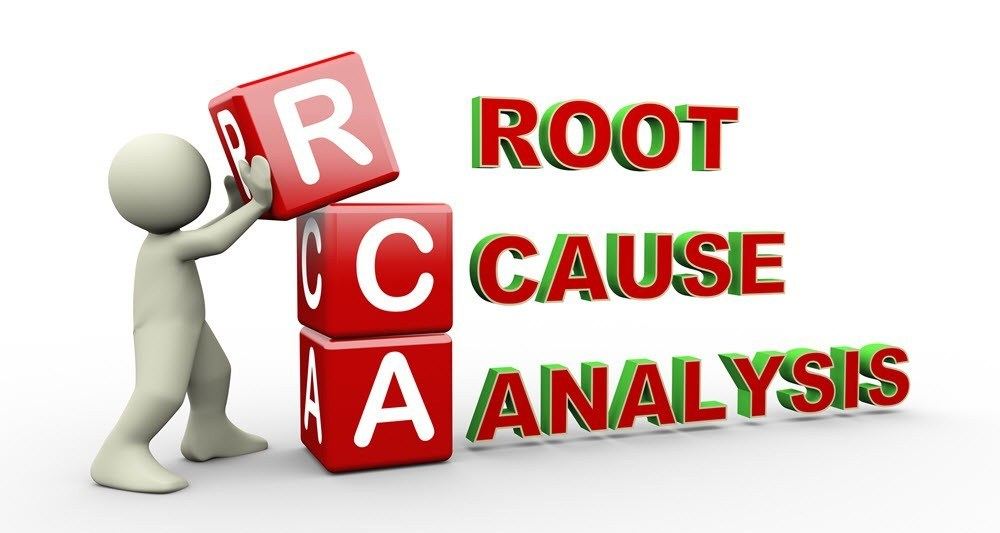EQMS Blog

RCA Training For Employees Within An Organisation
Root Cause Analysis (RCA) is a methodical approach for identifying the underlying cause of a problem or defect and prevent its recurrence. On the whole this approach is utilized to improve the quality of a product or service. Root Cause Analysis program is not easy to implement as it seems many organisations have struggled while implementing it.
Why RCA is necessary
Every program or business face some challenges in their work processes which should be addressed to reach the target. RCA not only identifies the root cause of an event but also urge to fix it rather than just clearing out the current symptoms which result in recurrence of the problem. Another benefit of RCA is that it minimizes the time and cost by spotting the problems in their early stages and fixing them right away. Despite the fact that the process is time consuming from identifying the issue to mitigation of the root cause, it is totally worth it.
In most of the cases in a RCA program it is vague what, when and how it needs to be done and most importantly who will do it. At this very point it is the common consumption that RCA training is all what is required to perform RCA successfully. However, in reality RCA trained individuals cannot implement RCA successfully without organisational support. They can only succeed at areas where they can exercise their individual control in attaining and time and revenues to mitigate root cause of a problem. This is because they might face hostility from other individuals of the organisation who are not aware of their RCA aims and objectives.
RCA training
In order to successfully implement RCA within an organisation it is important to have trained and skillful individuals to effectively fulfil their responsibilities. Few important points must be kept in mind while developing a training plan for respective employees.
- One of the most important skills required for RCA is identification of human behavioral interference. It can be challenging to understand all the behavioral aspects associated with them and then rectifying them as an element of RCA.
- Another critical skill is analyzing the strategic areas of improvement through past history records to ensure that RCA functions are centered.
- There may be many physical elements that fail in a process. So the RCA trained employees must be competent enough to diagnose the element failure mechanisms to ensure that they are proficient in identifying the underlying process and forces responsible for the physical elements failure.
- An RCA analyst must be capable enough to collect information and evidences during the work process. In addition to this they must have complete knowledge of different root cause analysis tools like 5 whys method, models and diagrams to ensure that the systemic approach is utilized.
- Communication and reporting skills are also very important for root cause analysis. A root cause analyst must be proficient in communicating the process progress and results with other concerned employees of the organisation.
- The most important and critical skill of all is taking the corrective action after root cause analysis, because if the root cause analyst fail to recommend corrective action, then there is absolutely no significance of the RCA.
Who Needs RCA Training
Everyone in a company plays a significant role in problem solving. Every employee encounter different problems and hindrances as the processes are being carried out. Such issues are mainly small scale and can be handled easily that they need no reporting at all. However, at times the problems break out into larger issues, it is therefore important to address smaller issues as well before turning into potential larger issues.
If you are interested in arranging a RCA training for your employees, feel free to contact us for a training at your premises.

Request a free consultation
Contact us to discuss your needs and see how we can support to reach your goal.

Recent posts

In today's digital age, businesses are constantly exposed to various cyber threats. As a result, companies must adopt a proactive approach to cybersecurity to prevent data breaches, theft, and other...

Quality management systems are essential in ensuring that organisations can deliver quality products and services consistently. The International Organisation for Standardization (ISO) developed the ISO 9001 standard to help organisations...

ISO 14001 is a globally recognised standard for environmental management systems (EMS) that helps organisations manage their environmental impact and improve their sustainability performance. Obtaining this certification demonstrates a company's...
Just a Few of Our Clients
Request a Free Consultation
Contact us to discuss your needs and see how we can support to reach your goal.












